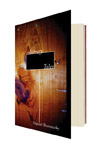The two-or-three-page prose piece is a peculiar genre for which none of our handful of names—minute fiction, flash fiction, short-short—is convincing. I would like to put forth the term Daisy Duke.
In the last decade or so, the Daisy Duke has become our most flexible genre, and often seems to vaporize poetry and fiction with its endless formal possibility. Indeed, the Daisy Duke’s great subject may be the boundary itself. In his debut collection, Arbitrary Tales (Triple Press), Daniel Borzutzky takes this formal irresolution past even the usual hinterlands, to a kind of no-fly zone, and shows himself to be a true avant-gardist. His eight-page piece called “The Sirens of the Silent City: A Silent Opera” is left-justified, like a poem; divided into three acts, like a play; and begins with the haunting lines “The sirens of the silent city / Sang ‘Oh silent city, convince us / That the song we sing / Is not being sung by us…,” a plaint that inquires whether a people can be other than their actions, or different than the story of their lives, which is fitting when you consider than to the literary object containing this question won’t decide what it is, either. The Daisy Duke “Eight Unfinished Narratives,” which is really a list of twenty unrelated lines and one collection of seventy-five different nouns, approaches the problem of identity by cramming disparate selves into itself. At one point, the author writes, “the words Who am I echo infinitely off the city’s buildings, growing louder and louder until the cat population goes deaf.”Though Borzutzky dabbles in the trend of math-based generative structures, his vision is too anarchic for any kind of government to endure beyond just a few lines, which is appropriate for a writer whose Daisy Duke “The History of Rights” imagines Europe as a place where “the brutal ruffian stepped into the town square, he was beaten by another brutal ruffian, who was in turn beaten by another brutal ruffian, who sang, ‘My lord is a brutal ruffian,’ and where ‘Civilization walked slowly through long, dark fields filled with brutal ruffians.’”
The Daisy Duke “Self-Knowledge” is Borzutzky’s most familiar-sounding piece, and resembles the work of other masters of this short form, such as Gary Lutz and Diane Williams. The speaker of this piece explains that he had “known J for a few months when she told me I could not be with her because I didn’t know myself,” though he later meets L, who “knew enough about himself to know that he did not want to know more about himself and in fact he wanted to unlearn what he already knew.” This is downright mimetic. In Borzutzky’s other first-person pieces, the interiority proves almost totally mysterious, and plunges into a kind of lyric terra incognita where every noun and verb must be closely examined, like a prose sculpture garden.
A trio of longer stories at the end of the book, “How We Celebrate the Arrival of Spring,” “War,” and “Uncle Alberto in Exile,” yearn toward a more conventionally unconventional, Kafka-style fiction, and prove that Borzutzky has a natural flair for storytelling, should he choose to one day go the narrative route. They satisfy as both experiments and as stories, and are the high-lights of the book, perhaps in spite of themselves. Arbitrary Tales is utterly uncompromised, and Daniel Borzutzky’s ruthless humor and formal courage make him stand out as an innovator, even in this atomized moment.
—Adam Novy





